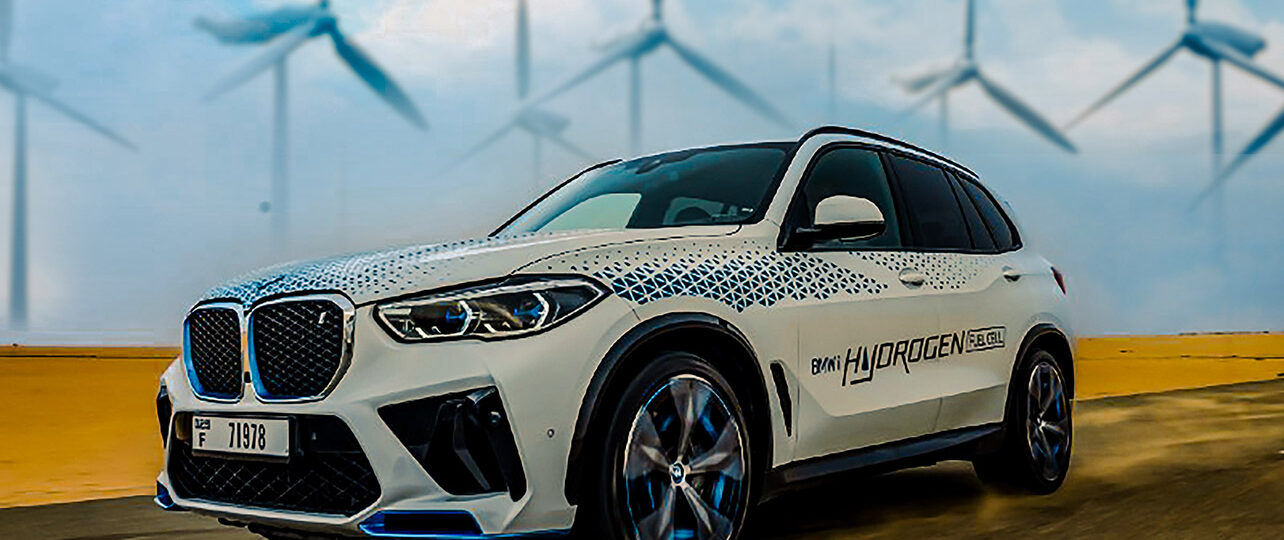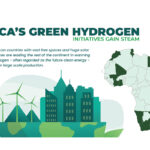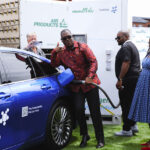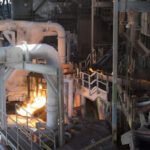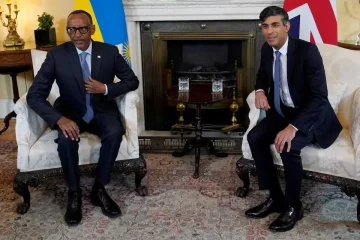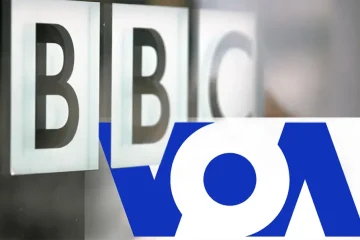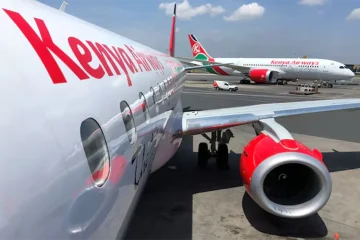BMW has claimed its place as the breakout star in Africa’s race for commercial hydrogen mobility with the unveiling of a hydrogen fuel cell vehicle in South Africa.
In a shot in the arm for Africa’s fledgling green hydrogen industry, the automaker chose Southern Africa for the test drive of its BMW iX5 Hydrogen. The continent has been seeking to leverage its renewable energy potential alongside key minerals like platinum in a bid to lead what is fast becoming a global industry.
Recent announcements of major investments in green hydrogen, including a hydrogen export port at Boegoebaai in South Africa and production facilities in Namibia, Mauritania and Egypt highlight the strategic importance of the region as a cornerstone for the green hydrogen production value chain.
Germany, BMW’s birthplace, is one of the biggest investors in green hydrogen development in Africa, seeking a head start after losing out on the electric vehicle race to early movers like Tesla and China’s BYD.
Other automakers, including some of the world’s biggest truckmakers, such as Daimler AG’s unit Daimler Truck, Volvo Trucks and Hyundai are also expected to venture into the hydrogen chain, with fuel cells and increasingly attractive opportunity.
Japanese carmaker Toyota has already stolen a march on competitors, launching a hydrogen-fueled, US$50,000 model, the Mirai, in the United States.
Hydrogen fuel cell technology converts hydrogen into electricity through a chemical reaction using catalysts like platinum, to power the vehicle. However, the high cost of green hydrogen is currently limiting widespread consumer adoption. Africa hopes breakthroughs in technology and manufacturing at scale will drive down those costs.
BMW’s initiative in SA not only elevates the conversation around green mobility but also poses a compelling question: What does this mean for the future of mobility in Africa and around the globe?
“Africa’s rich renewable resources, particularly in regions like the Sahara and Southern Africa, provide an unmatched advantage for green hydrogen production,” explains Alida Pavlovic, a sustainability expert. This initiative taps into this potential, positioning Africa not just as a consumer but as a leading player in the green hydrogen value chain.
“This isn’t an either/or scenario between EVs and hydrogen vehicles. It is about diversifying our green mobility options to ensure resilience and sustainability.”
BMW’s investment is expected to be a catalyst for local innovation, driving African entrepreneurs and startups to explore green technologies and sustainable business models.
In the new venture, BMW has partnered with two companies with long technology pedigrees, both “born in Africa” – Sasol South Africa Limited, and Anglo American Platinum. The venture aims to bring hydrogen fuel cell electric vehicles (FCEVs) and hydrogen refuelling technology to the country.
BMW will provide the FCEVs, Sasol will supply the green hydrogen and AngloAmerican Platinum will provide the platinum group metals (PGMs) needed for the fuel cells and the refuelling infrastructure.
A Reuters report predicts global politics will soon shift to support hydrogen mobility as it aligns with broader economic goals, promising job creation, technology transfer, and, importantly, a cleaner environment.
According to Deloitte, the emerging green hydrogen market will redraw the global energy and resource map as early as 2030, creating a US$1.4 trillion-a-year market by 2050
While the world’s attention has been fixed on an energy crisis in Europe caused by Russia’s invasion of Ukraine and on the traditional energy giants of the Middle East and North America, Africa is quietly positioning itself as a contender in the race to ignite a green hydrogen era.
Germany has teamed up with Namibia on green hydrogen development, while Norway has teamed up with Egypt.
Giving Africa’s hydrogen economy a head start is its abundant renewable energy resources, competitive labour costs and the space for mega projects.
Green hydrogen, unlike its grey or blue counterparts, is produced using renewable energy sources – primarily, solar and wind.
This process ensures zero carbon emissions, making it a sought-after solution for industries and sectors that are challenging to decarbonise. With its abundant sun and vast wind corridors, Africa presents an ideal landscape for green hydrogen production.
Parts of Mauritania’s Atlantic coast, for instance, have around 14 hours of sunshine per day in the summer months, with an intensity that can reach 8,000 watts per square metre.
Economist and investment analyst Aly-Kahn Satchu noted that the proximity to the point of consumption in Europe makes Africa ideal for investment in the sector.
“The advantage lies with those countries that have renewable resources and ready logistics and infrastructure into demand markets,” said Satchu, CEO of Rich Management Ltd.
“Morocco, Kenya and Tanzania, South Africa and Namibia stand out.”

